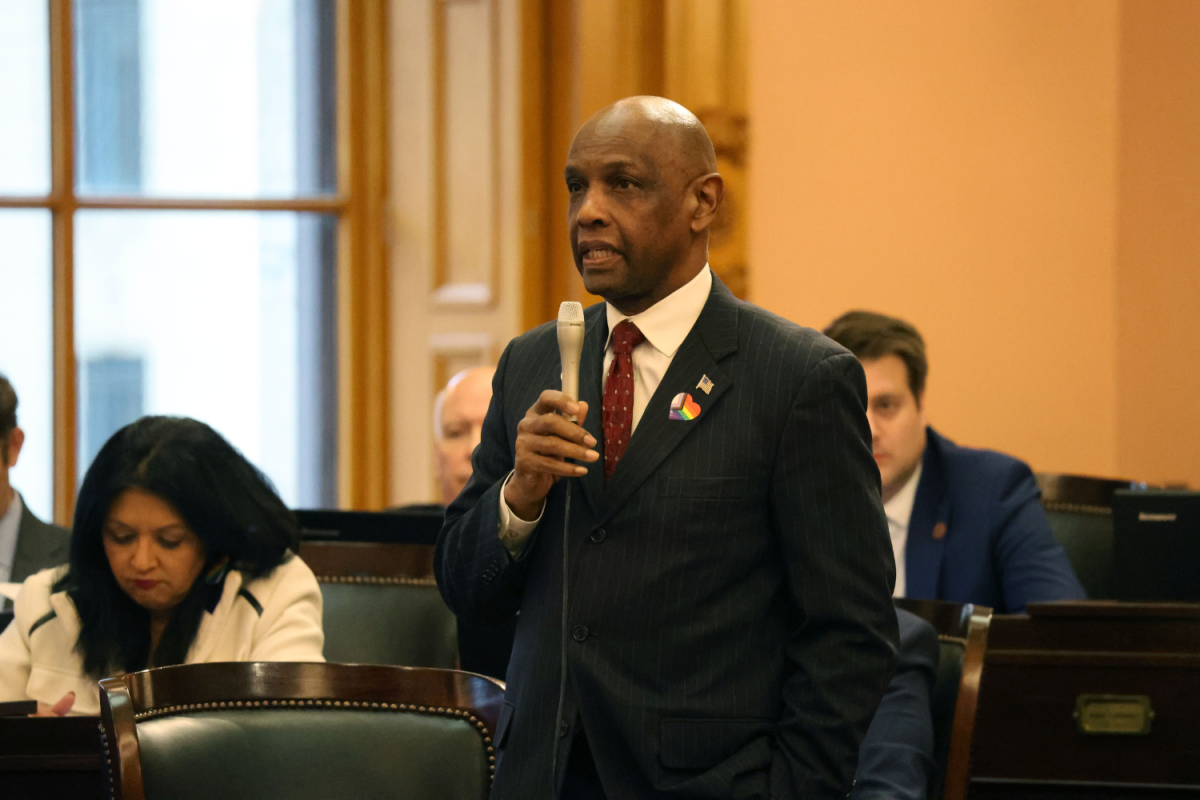The American Civil Liberties Union of Ohio announced Monday that they are planning to file a lawsuit against House Bill 68, a bill that sparked division between Governor Mike DeWine and state legislator that bans transgender minors from receiving gender affirming care and stops transgender women and girls from participating in men’s sports.
“We are preparing litigation to defend transgender youth and their constitutional right to receive medically necessary healthcare. The use of gender-affirming hormone therapy to treat transgender minors is supported by every major medical association in our country. Transgender youth, together with their doctors and parents, should have access to evidence-based medical care just like anyone else,” said Freda Levenson, Legal Director at the ACLU of Ohio in the press release.
The ACLU plans to file its lawsuit before the bill is set to go into effect on April 23.
The bill had a rocky passage with Governor Mike DeWine vetoing HB 68 before signing an executive order against gender-affirming care on Dec. 29 that was less restrictive in scope.
DeWine’s executive order banned hospitals from performing gender reassignment surgery on transgender minors and modifications to the treatment of gender dysphoria including a requirement for six months of counseling before additional treatments for persons under the age of 21.
“Although I vetoed Substitute House Bill 68, I stated clearly in my veto message that I agreed with the General Assembly that no gender transition surgeries should be performed on anyone under the age of 18” DeWine wrote in his executive order.
On Jan. 24 the Ohio Senate voted to override Governor Mike DeWine’s veto.
DeWine said he decided to veto HB 68 after speaking to medical professionals.
“I listened to physicians and counselors who provide gender-affirming care at five of Ohio’s children’s hospitals,” DeWine said. “I also listened to physicians who advocate for pausing gender-affirming care until more research on the long-term health effects is conducted.”
DeWine also said that his reasoning behind the veto was because he did not want the government to intervene in the decisions of the parents.
“Were I to sign House Bill 68 or were House Bill 68 to become law, Ohio would be saying that the State — that the government — knows better what is medically best for a child than the two people who love that child the most — the parents,” DeWine said.
On Jan. 10, 2024, the Ohio House first voted on the override.
Bride Rose Sweeney, the Democratic Ohio State Representative representing Berea, said that she was not in favor of either HB 68 or DeWine’s order.
“I don’t know why he did that. I do not support the bill, I do not support the executive order,” Sweeney said.
However, while not in favor of the order, Sweeney said that she agreed with DeWine’s decision to veto HB 68, and she believes she knows why the governor struck it down.
Sweeney said that a multitude of Ohio citizens came to DeWine against this bill, and she said that she thinks that their testimonies had a great effect on him.
“It was Ohioans that shared their stories, that shared how wrong this was,” Sweeney said. “There was one individual that came in and said, ‘I run a multiple million-dollar company, I make all these decisions, but you guys don’t trust me to make a decision what’s the best for my child?’” Sweeney said.
Sweeney said she is concerned about what may happen if the veto is overridden and the bill is passed. She said that she believes it would put children at great risk and in perilous danger.
“We can never give up when we’re talking about children’s lives,” Sweeney said.
State Senator Jerry Cirino, (R-Kirtland) voted in favor of HB 68 and voted in favor of the override.
“I voted for the underlying bill in both cases and so my plan is to continue to support the bill,” Cirino said.
Regardless of Cirino’s support for HB 68, Cirino said he was not exactly satisfied with the governor’s executive order because of its potential for dissolution.
“It is an executive order, and a future governor can change that with a stroke of a pen,” Cirino said. “So, it’s not, I think, a good way to run the government with executive orders.”
Cirino also said that he disagrees with the line of reasoning that the government should not involve themselves in parents’ decisions, because he said that the government is already often involved in decisions to protect children.
“The state has purview over education for children. It has purview over custody of children in adoption, the adoption process and so on,” Cirino said. “So, we’re engaged in protecting children in a number of areas.”
While DeWine is against HB 68, he said that he can understand both sides of the issue and its complexities.
“It is very important that we all remember that all those on each side of this issue truly and sincerely believe their position best protects children,” DeWine said. “These are truly complex issues, and reasonable people can draw vastly different conclusions.”
This story was originally published on The Exponent on January 31, 2024.







































